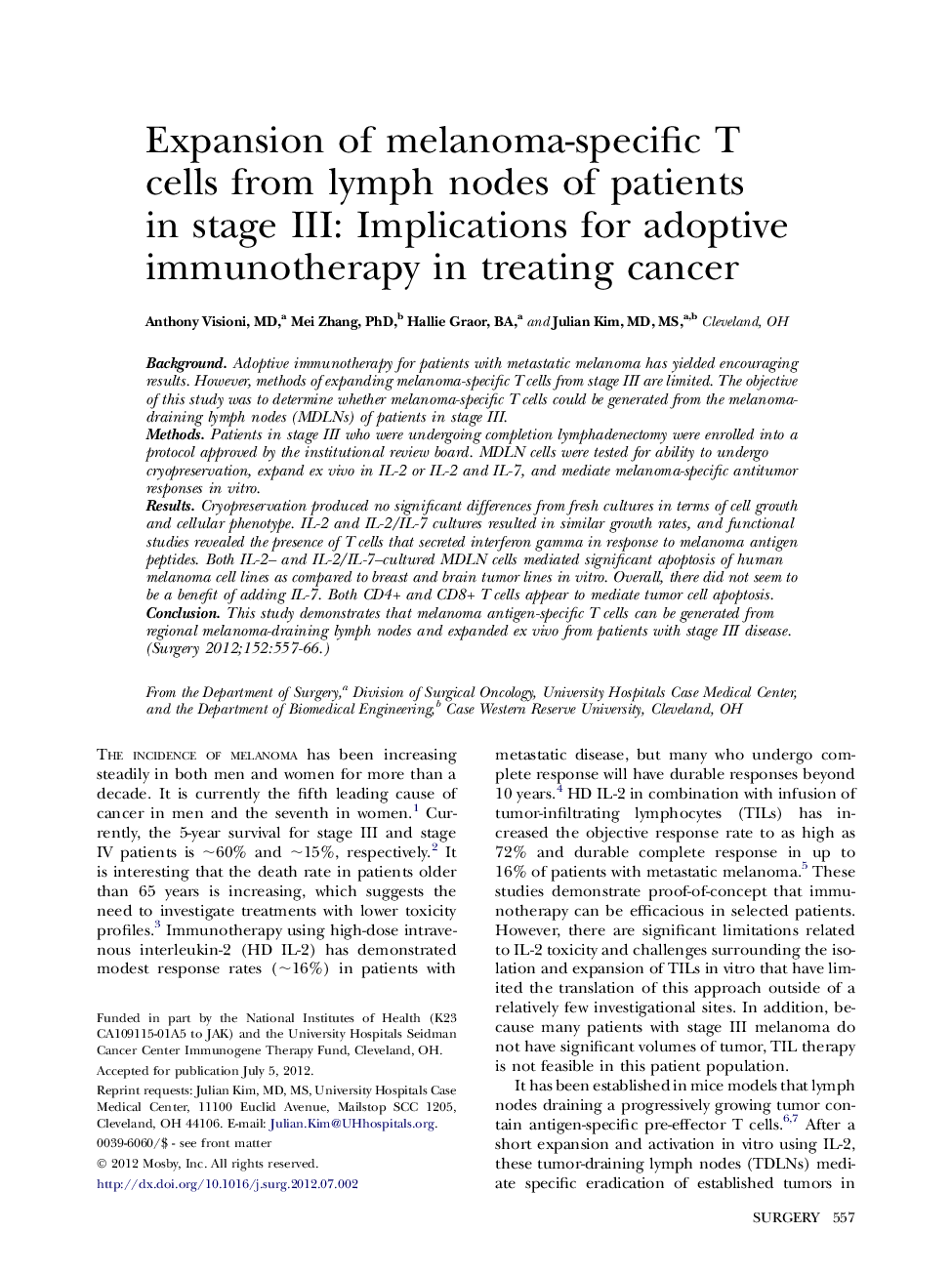| Article ID | Journal | Published Year | Pages | File Type |
|---|---|---|---|---|
| 4307822 | Surgery | 2012 | 10 Pages |
BackgroundAdoptive immunotherapy for patients with metastatic melanoma has yielded encouraging results. However, methods of expanding melanoma-specific T cells from stage III are limited. The objective of this study was to determine whether melanoma-specific T cells could be generated from the melanoma-draining lymph nodes (MDLNs) of patients in stage III.MethodsPatients in stage III who were undergoing completion lymphadenectomy were enrolled into a protocol approved by the institutional review board. MDLN cells were tested for ability to undergo cryopreservation, expand ex vivo in IL-2 or IL-2 and IL-7, and mediate melanoma-specific antitumor responses in vitro.ResultsCryopreservation produced no significant differences from fresh cultures in terms of cell growth and cellular phenotype. IL-2 and IL-2/IL-7 cultures resulted in similar growth rates, and functional studies revealed the presence of T cells that secreted interferon gamma in response to melanoma antigen peptides. Both IL-2– and IL-2/IL-7–cultured MDLN cells mediated significant apoptosis of human melanoma cell lines as compared to breast and brain tumor lines in vitro. Overall, there did not seem to be a benefit of adding IL-7. Both CD4+ and CD8+ T cells appear to mediate tumor cell apoptosis.ConclusionThis study demonstrates that melanoma antigen-specific T cells can be generated from regional melanoma-draining lymph nodes and expanded ex vivo from patients with stage III disease.
